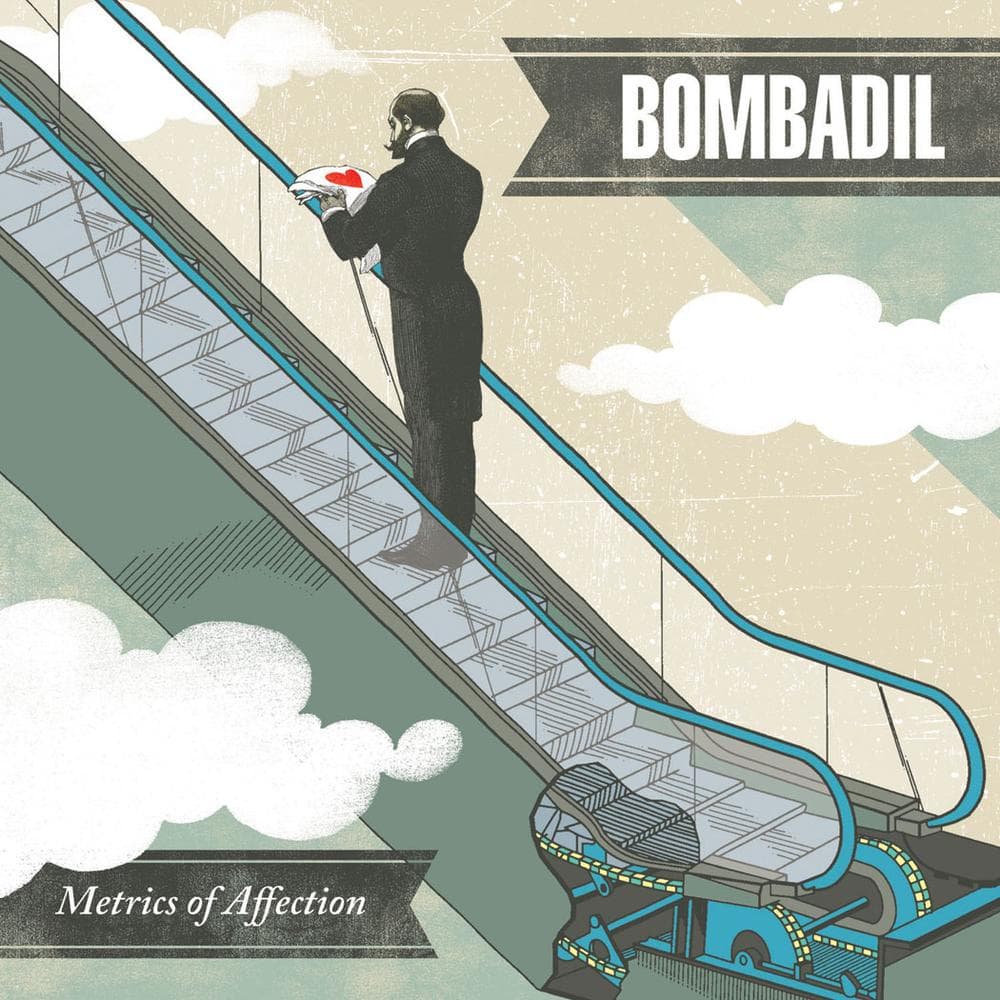Advertisement
The Improbability Factor: Bombadil’s Unlikely Music
Based on their name alone, Bombadil sound cute, and they are. The Durham, North Carolina-based indie folk-pop trio, named for J.R.R. Tolkien’s nursery-rhyme-spouting sprite, are by turns witty and earnest, crafting artful arrangements around hummable hooks. The three men who make up the band have shaggy hair and boyish appeal, and on the surface at least, their music bears out this image.
Yet a closer listen across seven years and five albums reveals an astonishing sonic breadth and an existential undercurrent to the group’s otherwise cheeky music, which they will perform on Nov. 1 at T.T. the Bear’s Place in Cambridge. In their more peculiar moments they sound like a less-psychedelic Sgt. Pepper-era Beatles; at other times, enamored with a certain Baroque elaborateness, they could be a mellower Vampire Weekend. Occasionally they discard their instruments and opt instead for minimalist piano accompaniment and tender three-part harmonies.

The members of Bombadil “see the studio as a place to really try anything, and if we all like it, it sticks,” says drummer James Phillips, who also engineered the band’s latest album, “Metrics of Affection,” in a studio at home. For Bombadil, these recording sessions are opportunities to transcend the limits of live performance. “We only knew how to play one song live when we recorded it,” remembers Phillips with a laugh.
On “Metrics of Affection,” multi-instrumentalists Daniel Michalak and Stuart Robinson take turns singing lead, along with guitarist Bryan Rahija, who has since left the band. Michalak even raps at one point, and though it may sound like folly to listeners with any affinity for hip-hop, the gesture speaks to Bombadil’s extraordinary willingness to commit to their vision. Every once and a while, it produces raw, spine-tingling performances like Robinson’s on “What Does It Mean,” a melancholy breakup song made that much more poignant by the choice to have Robinson perform it by himself—a man with a piano, and his heart laid bare.
More often, though, Bombadil excel at upbeat, oddly-phrased compositions that toy with pop tropes. On their 2011 album “All That the Rain Promises,” they take on the well-worn boy-meets-girl narrative with “Laundromat,” which begins with a methodical drumbeat and a familiar declaration: “The next time I am at the laundromat/ I’m gonna talk to her/ And the next time I talk to her/ I’m gonna ask her out.” But when the verse comes around again, the girl has been forgotten; now, the singer wants to call his dad and apologize. “The snack machine is stuck between the TV and magazines/ That talk about our self-doubt and the things we can’t live without,” he intones. With a deft twist, a rom-com cliché is transformed into a rumination on the unfathomable distance between intent and action. “I’ve been waitin’ after weekend after weekend after,” sings Rahija, over and over, slowly overcome by a swell of voices and the thrum of electric guitar. The song ends in a wordless crescendo, as if to break free of the stagnance particular to modern life, in which countless small failings add up to a lifetime of regret.
Like all Bombadil songs, “Laundromat” is the product of a co-writing process that eludes formula. Sometimes, Phillips writes a tune and hands it off to the others for lyrics; other times, Michalak, Robinson, or Rahija will bring words and the rest of the band will flesh out the melody. Despite this fractured approach, there is an undeniable congruity to Bombadil’s songs. “I think our influence on each other has kind of lead to the three of them having similar sensibilities,” says Phillips of the band’s lyricists.
In truth, Bombadil’s continued existence is the most improbable thing of all. Though the group’s origin story reads like a prototypical indie band bio—Michalak, Robinson, and Rahija met as undergrads, and Phillips was found on Craigslist a few years later—since the band’s inception, the lineup has been in a state of flux. First Robinson quit to attend graduate school, and then Michalak was unable to play due to repetitive stress pain in his hands. The full band was briefly reunited for “All That the Rain Promises,” but since then Rahija has enrolled in business school, though he is still involved in writing and recording. “I’d say we’re a trio at this point, with a very trusted advisor,” says Phillips.
In describing the band’s travails, Phillips is reluctant to characterize them as such. For him, the hiatus was an opportunity to move to the West Coast and tour with other artists. And when Michalak stopped playing, he started experimenting with a laptop, which contributed to the electronic bent of “Metrics of Affection.” It was during this time, too, that he met his wife.
It would be too easy to conclude that everything happens for a reason, or that the band’s resilience is a sign that they are destined for greatness. “We all want Bombadil to be a really open-ended thing, so that we can keep doing it for a long time,” says Phillips. Everyone likes a sure bet, but as the members of Bombadil well know, the best songs defy expectations.
This article was originally published on October 24, 2013.
This program aired on October 24, 2013. The audio for this program is not available.


